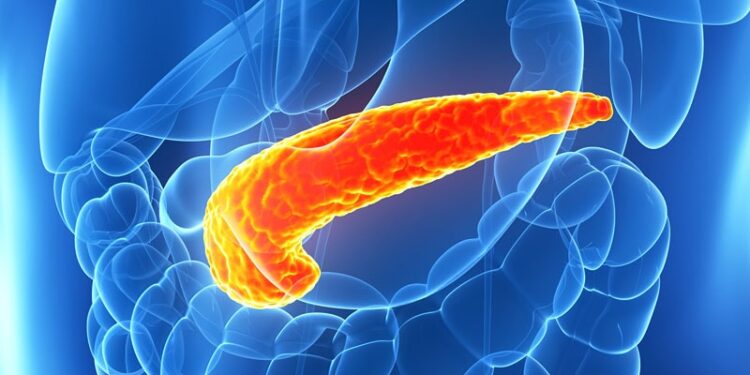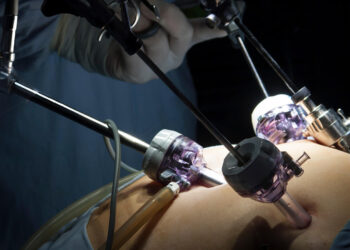TOPLINE:
Patients with sludge- or microlithiasis-induced acute pancreatitis (AP) had significantly lower rates of pancreaticobiliary complications than those with gallstone-induced AP.
METHODOLOGY:
- Researchers enrolled 789 patients who were hospitalised with their first episode of biliary pancreatitis between January 2018 and April 2020 at 16 Spanish and two Mexican centres.
- Patients were divided into two groups on the basis of types of calculi: those with sludge- or microlithiasis-induced AP (n = 274; median age, 71.9 years; 53.2% women) and gallstone-induced AP (n = 515; median age, 68.9 years; 54.3% women), with neither group receiving cholecystectomy during admission.
- The primary endpoint was the rate of pancreaticobiliary complications, measured as the complication-free survival rate, in patients with sludge- or microlithiasis-induced vs those with gallstone-induced AP.
- The multivariate analysis was conducted to assess the effect of multiple variables on complication-free survival.
- The median follow-up duration was 8.15 months for the sludge/microlithiasis AP cohort and 6.13 months for the gallstone AP cohort (P < .001).
TAKEAWAY:
- Patients with gallstone-induced AP had a significantly higher rate of pancreaticobiliary complications than those with sludge- or microlithiasis-induced AP (41.75% vs 32.12%; P = .01).
- Patients in the gallstone AP group had a significantly lower complication-free survival rate than those in the sludge/microlithiasis AP group (log-rank P = .0022).
- The most frequent complication was recurrent AP, occurring in 24.08% of patients in the gallstone AP group and 20.07% of those in the sludge/microlithiasis AP group.
- The medium Charlson Comorbidity Index was independently associated with a higher risk for pancreatobiliary complications for the sludge/microlithiasis AP cohort (hazard ratio [HR], 2.07; P = .005). In the gallstone AP group, older age was associated with a reduced risk for pancreaticobiliary complications (HR, 0.54; P < .001).
IN PRACTICE:
“The lower complication rate observed during follow-up supports, for the first time, the consideration of the sludge/microlithiasis AP cohort as a distinct clinical entity — one that may warrant a more conservative interventional approach, particularly in patients with elevated perioperative risk,” the authors of the study wrote.
SOURCE:
This study was led by Simon Sirtl, MD, LMU University Hospital, Munich, Germany. It was published online on June 28, 2025, in Digestive and Liver Disease.
LIMITATIONS:
The study’s retrospective design precluded prospective stratification depending on the newly published consensus definitions for biliary sludge and microlithiasis. The inability to stratify patients along with only 17.1% of patients undergoing endoscopic ultrasound introduced heterogeneity into the sludge/microlithiasis AP cohort as the classification remained examiner dependent. Furthermore, the sample size was calculated for pancreatobiliary complications in symptomatic cholelithiasis rather than specifically for AP.
DISCLOSURES:
The trial was funded by AEG Young Talent Grant 2021. One author reported receiving funding from the Deutsche Forschungsgemeinschaft (German Research Foundation) and the LMU Munich Clinician Scientist Program.
This article was created using several editorial tools, including AI, as part of the process. Human editors reviewed this content before publication.
Source link : https://www.medscape.com/viewarticle/lower-rates-pancreaticobiliary-complications-sludge-or-2025a1000hm8?src=rss
Author :
Publish date : 2025-07-04 12:00:00
Copyright for syndicated content belongs to the linked Source.














